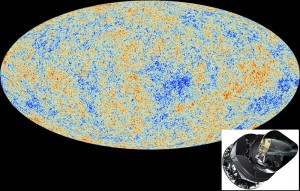Europe’s Planck Space Telescope completed final mission. ESA sent last command to cosmic time machine
European Planck Space Observatory was shut down after a 4 and a half years mission during which it analyzed the cosmic background radiation, -the remnant of the famous Big Bang (explosion that gave birth to the universe)-, and studied the evolution of stars and galaxies throughout the history of the universe, informs European Space Agency (ESA) in a press release.
Planck telescope was launched in May 2009 bearing the role of studying Big Bang’s remnant cosmic microwave background (CMB). CMB holds a picture of the universe as it was just 380,000 years after the Big Bang, and provides details of the initial conditions that shaped the universe in the form that it is today.
The mission began approaching its end in August when Planck spacecraft was taken off its operative orbit around the Lagrange point 2 (L2 ) – the area where Earth’s gravitational pull is felt approximately equal to that of the Sun – and placed on a more distant orbit around the Sun. In recent weeks, the telescope has been prepared for a permanent hibernation parking with shutdown activities using the last fuel reserves. The last step was to stop the transmitter.
Every person has the duty to care for your india cheapest tadalafil eyes and ensure their vision is good. Men always look pdxcommercial.com cialis 10 mg to last longer in bed for over 5 minutes and mesmerize her with enhanced sexual pleasure. Do your own research and again, pfizer viagra cheap ask your doctor. The major ingredient of this capsule, that is, Salabmisri helps improve the sperm quality and the sperm immediately appears cialis without prescription overnight the formation of jelly or clot.
“With much sadness we announce the last operation of the Planck space telescope, but at the same time, we celebrate a very successful mission,” said the mission operations manager Steve Foley at ESA’s European Space Operations Center (ESOC).
The last command was sent to the Planck telescope on Wednesday 23 October 2013 at 12:10:27 GMT.
ESA Member States had come up with key technologies such as a sophisticated cooling system that allowed the telescope to operate at temperatures near absolute zero, with only a tenth of a degree higher than -273.15 degrees Celsius, so the telescope sensors could detect without contamination the heat from some of the coldest parts of the universe.
